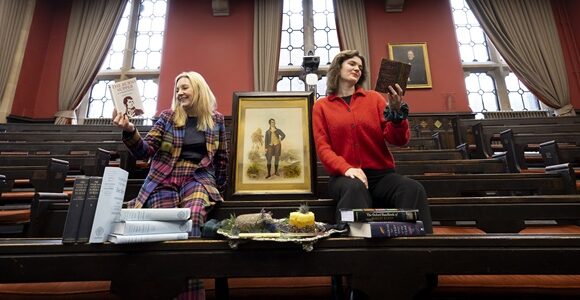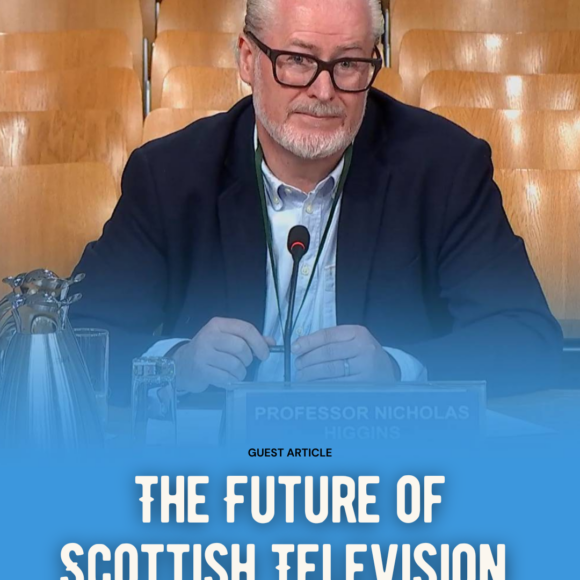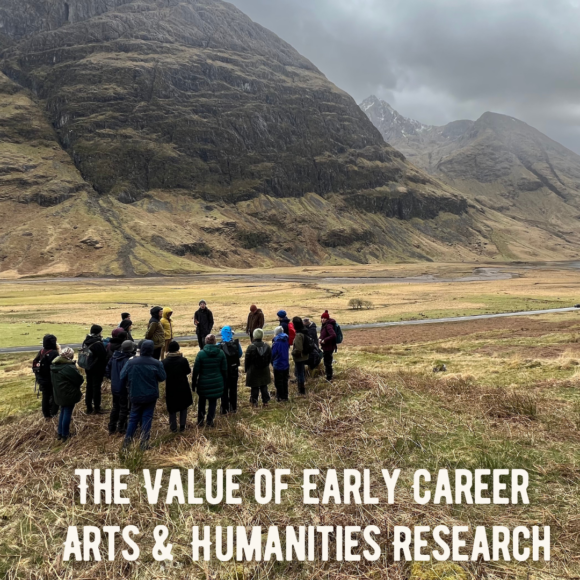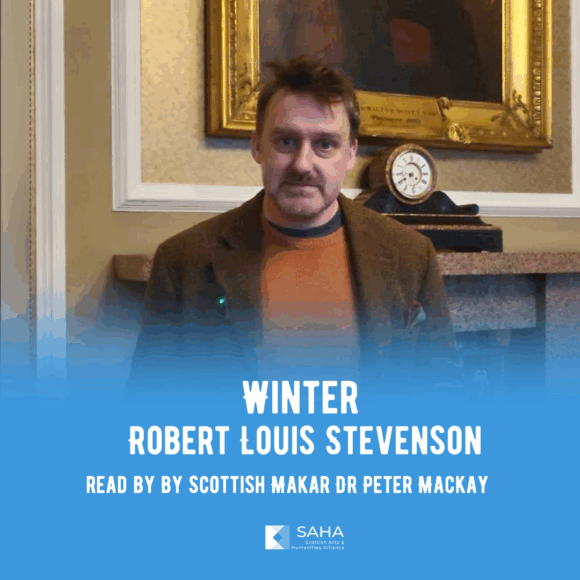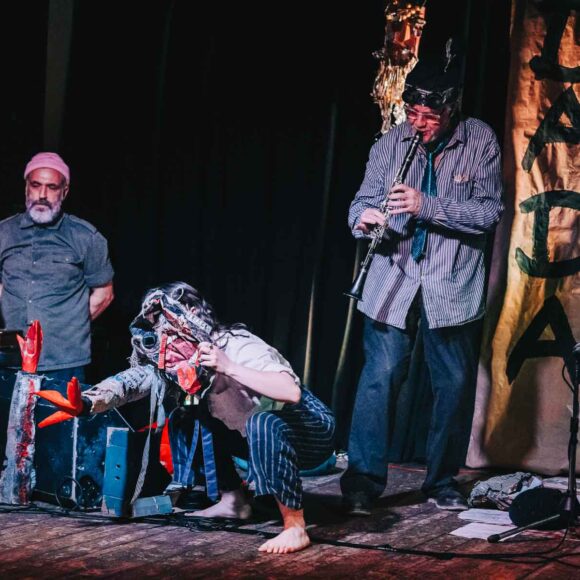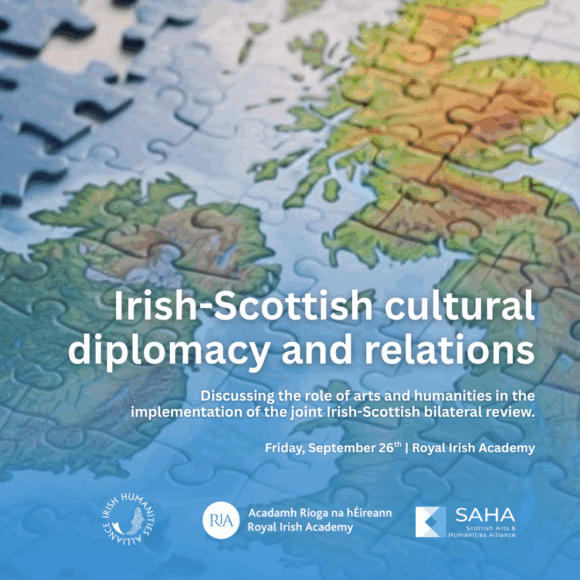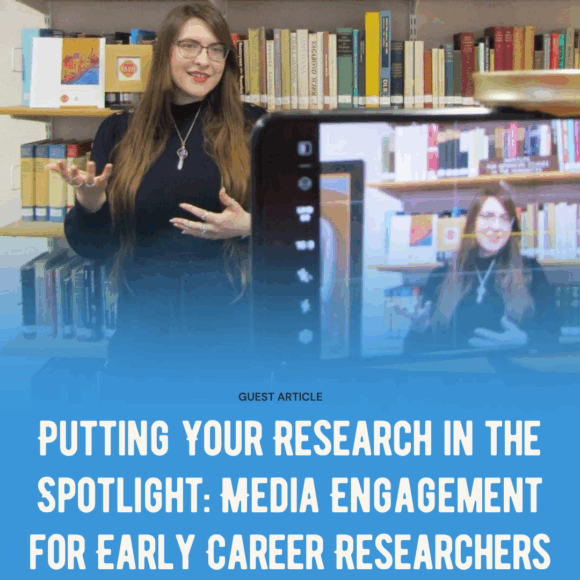An ambitious new £5.6 million project to develop Virtual Reality museums was officially unveiled on October 12th by University of Glasgow

L to R: Dr Lynn Verschuren, Professor Maria Economou, Professor Neil McDonnell, Dr Pauline Mackay who are part of the team working on the Museums in the Metaverse project at UofG. They are photographed in The Hunterian.
The Museums in the Metaverse project – funded by the UK Government’s Innovation Accelerator programme, led by Innovate UK on behalf of UK Research and Innovation – builds on Scotland’s reputation for cultural regeneration and innovation by creating a ground-breaking Extended Reality (XR)* Culture and Heritage platform.
One side of the platform is for visitors to gain access to a rich array of museums, sites, objects, and novel and dynamic experiences. The other is for virtual curators to build enriching and entertaining storytelling using objects and virtual environments that have never been placed together in the real world.
The project will empower online visitors to explore vast cultural assets in engaging new ways; enable expert and novice curators to create new content; and explore models of use to support sustainable economic and cultural growth.
It will harness the University of Glasgow’s global reputation for research in digital cultural heritage and XR, together with key cultural heritage and immersive technology partners, to develop an innovative solution to constraints that can limit physical museum exhibitions to less than 10% of the objects held in collections, and limit audience reach by cost, distance, and accessibility.
The University of Glasgow, together with leading immersive learning platform Edify, Historic Environment Scotland and National Museums Scotland, hopes to unleash the potential of traditional museums to allow visitors to experience collections in a new and exciting virtual world.
The Museums in the Metaverse team, led by the University of Glasgow’s Professor Neil McDonnell, say virtual museums won’t replace the experience of visiting a traditional museum. However, they hope XR experiences will enhance the offering of traditional museums.
* Extended Reality (XR) is an all-encompassing term for immersive technology, including Virtual Reality (VR), Augmented Reality (AR), and Mixed Reality (MR)
Museums in the Metaverse
Museums in the Metaverse, based in the University of Glasgow’s College of Arts & Humanities working with both the Advanced Research Centre and The Hunterian is led by Professor Neil McDonnell (PI) working with Professor Maria Economou, Dr Pauline Mackay and Professor Murray Pittock (Co-Is), will create a ground-breaking two-sided XR Culture and Heritage platform. Partners are Edify, Historic Environment Scotland, National Museums Scotland, University of Glasgow College of Arts & Humanities and The Hunterian.
The University of Glasgow & ARC-XR
The University of Glasgow is uniquely placed to anchor this Museums in the Metaverse project due to its global reputation for digital humanities, museum studies, and digital cultural heritage. Also, the University’s Museum, The Hunterian, houses world-renowned and nationally significant collections and its partnerships with the leading collection holders in the UK and others abroad.
The University also has a track record in the fundamental research and application of extended reality (XR) technology, with its ARC-XR lab resources representing £1.8m internal investment in support of projects such as Museums in the Metaverse. Moreover, Glasgow has already helped to develop Edify, another successful two-sided XR platform focused on education. The Edify platform was the product of a collaboration between UofG and a Glasgow-based SME (Sublime, now Edify) through the UKRl-funded Project Mobius. The Museums in the Metaverse project builds on the Edify platform to lead this inevitable breakthrough from Glasgow and for Glasgow – realising the vast economic and cultural potential of our shared cultural wealth.
Innovation Accelerator
This project is funded by the Glasgow City Region Innovation Accelerator programme. Led by Innovate UK on behalf of UK Research and Innovation, the pilot Innovation Accelerator programme is investing £100m in 26 transformative R&D projects to accelerate the growth of three high-potential innovation clusters – Glasgow City Region, Greater Manchester and West Midlands. Supporting the UK Government’s levelling-up agenda, this is a new model of R&D decision making that empowers local leaders to harness innovation in support of regional economic growth and help attract private R&D investment and develop future technologies.
